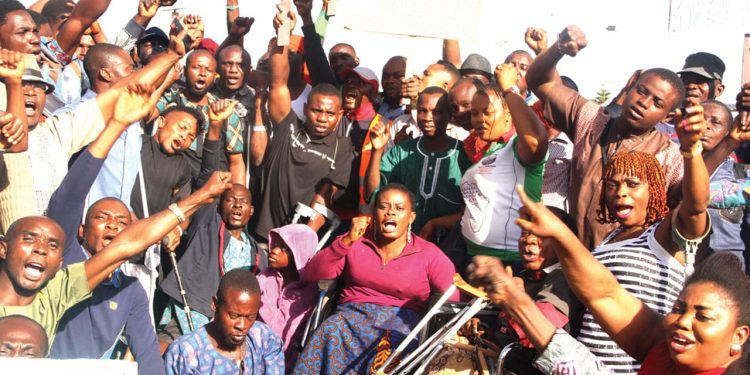The Students Loan (Access to Higher Education) Act which was signed to law on June 12, 2023 is set to provide easy access to higher education for Nigerians through students’ loan with a view to providing education for all Nigerians.
As parts of measures to review the provisions of the Act and check if it is inclusive or discriminatory to students with disabilities, BONews Service hosted a Twitter Space, where experts spoke on key provisions of the Act.
Speakers that featured at the conversation were; Lynn Agwuncha, the Senior Communications Officer at TAF Africa; Oluwakemi Aladesanmi, a student with disability; Michael Fadeyi, a Ph.D. researcher and person with disability; and moderated by Blessing Oladunjoye, Publisher of BONews Service.
While speaking about the provisions of the Act and how it does not take cognizance of the needs of students with disabilities, Agwuncha said the stringent conditions to access the loan, the guarantors, and the repayment plan do not support students with disabilities.
Agwuncha buttressed that “persons with disabilities who does not have a relationship with high ranking public servant is first of all denied from accessing the loan.
“PWDs also encounter discriminatory employment, so if a student with disability graduates from school and is unable to pay 2 years after NYSC, what happens after,” she asked.
Agwuncha also noted that Organizations of Persons with Disabilities (OPDs) need to begin to work together to ensure that the Act caters for the needs of students with disabilities.
Aladesanmi who noted that the loan covers tuition only explained that there are other financial needs for students with disabilities, to be able to learn effectively like their counterparts without disabilities.
She said “Providing loan for tuition is not sufficient to enhance access to education for students with disabilities. There are other disability costs such as assistive technology for learning that the Act does not provide for.
“For someone like me, I spend 550 Naira for transportation to go from my hostel to the lecture hall whereby other students spend 70 Naira only. The reason is because I have to take a cab so that my wheelchair can be in the boot as many drivers would not allow that.
“So, the Act did not put all of that into consideration,” Aladesanmi added.
She thereafter noted that once students with disabilities are able to access the loan, there should be extension for the repayment options, considering that they might encounter different form of challenges to gain employment.
Mr. Fadeyi who said there are no disaggregated data to track the repayment of the loan as some beneficiaries might default, thereby making it difficult to other vulnerable and indigent students to benefit.
He believes that the Act is a good initiative that can enhance access to education for students with disabilities, but called for adequate implementation and special consideration for students with disabilities.
Blessing Oladunjoye, who thanked the speakers and participants for their time noted that, though the Act cannot be reviewed immediately, as it has just been recently passed, appealed that disability cost should be incorporated into the Act so that students with disabilities can benefit tremendously.

